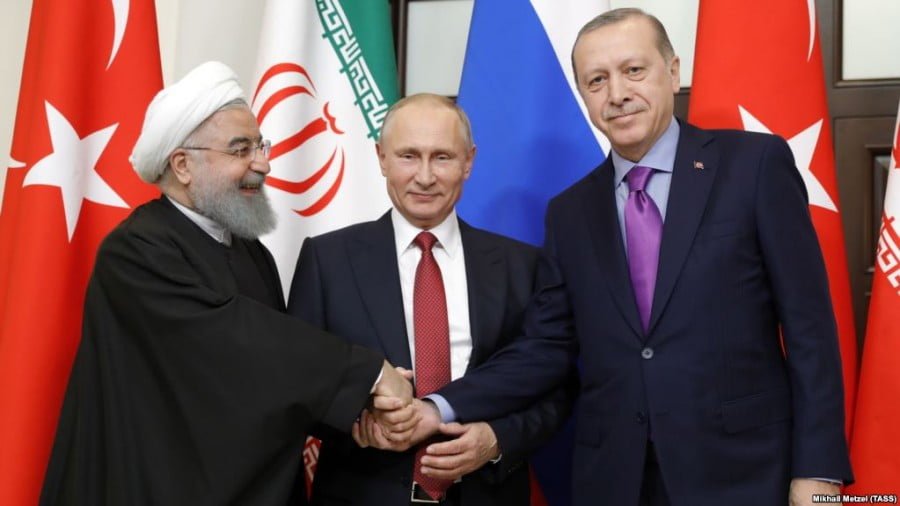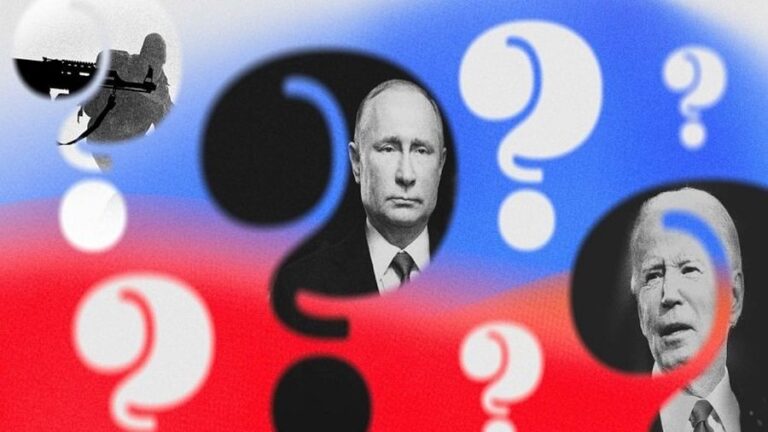Lula’s Condemnation of Russia in His Joint Statement with Biden Disqualifies Him as a Mediator
Lula’s self-interested publicity stunt in insincerely presenting himself as a neutral mediator in the Ukrainian Conflict should be acknowledged for what it is, which is a means for boosting his clout in parallel with improving ties with the US. Despite being at Russia’s rhetorical expense, the substance of their strategic ties remains solid and is poised to further strengthen, which should be the focus of observers going forward unless he refuses to stop condemning Moscow.
Brazilian President Lula’s efforts to present himself as a so-called neutral mediator in the Ukrainian Conflict went up in smoke after he condemned Russia in his joint statement with Biden last week. He’d already straddled the line of neutrality by earlier comparing its special operation in Ukraine to the US’ Hybrid War on Venezuela, but he clearly crossed the political Rubicon by unambiguously condemning it alongside his US counterpart after their latest meeting in DC.
Here’s some background reading for those who haven’t followed this dimension of the New Cold War:
* “Lula Just Became The First BRICS Leader To Publicly Condemn Russia’s Special Operation”
* “Lula’s Recalibrated Multipolar Vision Makes Him Amenable To The US’ Grand Strategic Interests”
* “It Makes Perfect Sense Why Russia Doesn’t Support Lula’s G20-Like Peace Proposal”
* “Lula Sealed His Deal With The Devil By Condemning Russia During His Meeting With Biden”
* “Debunking The #LulaLiberals’ Lies For Covering Up His Condemnation Of Russia”
Basically, Lula’s clumsy “balancing act” inadvertently exposes his mediation proposal as a publicity stunt.
Observers should remember that no BRICS leader nor any of their representatives up until this point had condemned Russia like Lula just did, not even former President Bolsonaro after his meeting with Biden last summer. While Turkish President Erdogan has said much worse than his Brazilian counterpart did, his country still managed to facilitate the peace process early last year due to its convenient location for hosting such talks between both sides, which is the extent to which any third party can play this role.
Brazil is literally half a world away from where the Ukrainian Conflict is unfolding so it can’t realistically replace Turkiye as the place where the primary participants’ representatives meet to discuss everything. Perhaps aware of this geographic inconvenience, Lula thought “outside the box” by presenting his G20-like peace proposal for assembling a larger group of countries that would discuss this conflict instead. That’s doomed to fail though for the reasons explained in the third cited analyses above.
Had he not unambiguously condemned Russia in his joint statement with Biden, however, then Lula might have been able to secure at least the rhetorical support of his BRICS counterparts for his proposal. They’re likely now uncomfortable with it after what he just committed to paper alongside the US leader, which in turn reduces the chances that it’ll ever get off the ground, not to mention Russia’s lack of support for it too. After all, he’s now tainted after crossing the political Rubicon just to please the US.
Neither the Chinese, Indian, nor South African leaders thought it wise to agree to anything of the sort after their calls and meetings with Biden, which thus places Lula in a league of his own when it comes to his BRICS counterparts. If they associate with his G20-like peace proposal that Russia’s already very clearly ignored after indirectly conveying its belief that it’s an insincere publicity stunt that also goes against its interests, then they risk eroding the goodwill that they’ve thus far generated with Moscow.
To be absolutely clear, it’s Brazil’s sovereign right and that of Lula as its commander-in-chief to promulgate whatever policy is regarded by its leadership as being in that country’s interests, but there are also consequences to its choice as well. Constructive critiques of the aforesaid are to be expected whenever the decision that’s ultimately made is disadvantageous to one of its partner’s interests, in this case Russia’s, especially considering these two’s officially strategic relations.
That said, the Russian-Brazilian Strategic Partnership shows no risk of weakening in spite of Lula disqualifying himself as a mediator in the Ukrainian Conflict due to his tacit preference for pleasing the US in this instance at Russia’s rhetorical expense. Its Ambassador to Moscow’s recent suggestion that this Eurasian Great Power establish a serious presence in his country’s energy industry proves that Lula does indeed intend to balance between both protagonists in the New Cold War’s top proxy war.
This being the case, his self-interested publicity stunt in insincerely presenting himself as a neutral mediator in the Ukrainian Conflict should be acknowledged for what it is, which is a means for boosting his clout in parallel with improving ties with the US. Despite being at Russia’s rhetorical expense, the substance of their strategic ties remains solid and is poised to further strengthen, which should be the focus of observers going forward unless he refuses to stop condemning Moscow.







